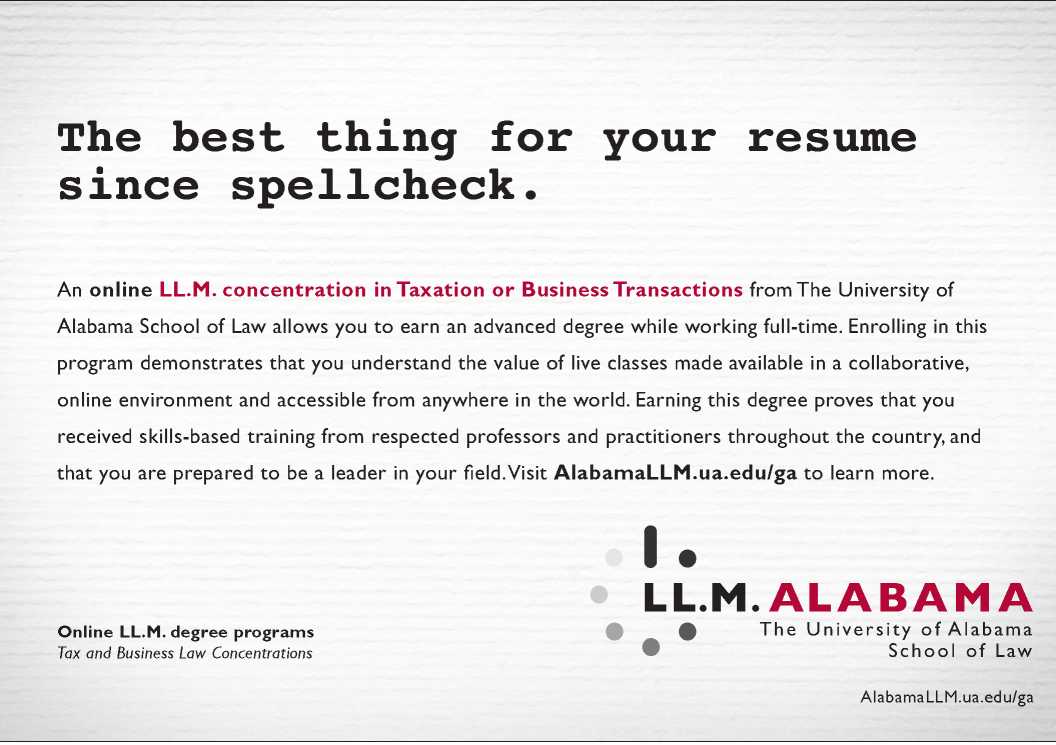Georgia's Public Whistleblower Statute
| Citation | Vol. 20 No. 6 Pg. 0008 |
| Pages | 0008 |
| Publication year | 2015 |
A Look at the Law
by Christopher A. McGraw
For more than 20 years a Georgia statute has prohibited government employers from retaliating against their "whistleblowing" employees. For most of that time the statute went largely unused by Georgia lawyers, but in recent years litigation under the state public whistleblower statute—O.C.G. A. § 45-1-4 —has increased dramatically. It is now a law that Georgia lawyers who represent public employees or employers need to understand.
When first enacted in 1993, the Public Whistleblower Statute was rarely the subject of lawsuits presumably because it was of limited scope[1] and the only remedy it provided to an aggrieved whistleblower was reinstatement to his pre-retaliation employment position.[2] In 2005, however, the General Assembly expanded the statute by applying it to more employers and employees and by increasing the available remedies to include various forms of damages.[3] Litigation based on the statute has increased substantially in the years since. In fact, an online search of reported appellate decisions that have ruled on or substantively cited to the Public Whistleblower Statute revealed only three cases in the 12-year period between 1993 and 2005, but 11 cases in the 10-year period since then with nine of those issued in the last five years.

As they deal with this increase in whistleblower lawsuits, Georgia's courts are still grappling with how these claims should be analyzed, particularly at the summary judgment stage. As discussed later in this article, the Court of Appeals of Georgia has lately analyzed these cases in a format similar to the burden-shifting paradigm created by federal courts for analyzing employment discrimination and retaliation claims.
The Scope of O.C.G.A. § 45-1-4
Of course, to understand litigation involving the Public Whistleblower Statute, one must first understand the statute itself. It is critical to know that the statute's prohibitions and protections only apply to "public employers" and "public employees," respectively, as those terms are specifically defined in the first subsection of the statute. A "public employer" is defined to include all parts of the state government or a local or regional governmental entity that receives funds from the state or any of its agencies.[4]A "public employee" is likewise defined as anyone employed by such a public entity.[5] The statute does not apply to whistleblowers in the private sector.
In regulating interactions between public employers and whistleblowing employees, the Public Whistleblower Statute includes two distinct parts that the Supreme Court of Georgia has held are to be read separately.[6] One allows public employers to investigate complaints from employees about fraud, waste and abuse in certain areas, and generally prohibits them from disclosing the whistleblower's identity. The other prohibits public employers from retaliating against employees who disclose violations of or noncompliance with a law, rule or regulation.
The Statute's Non-Disclosure Provision
O.C.G.A. § 45-1-4(b) authorizes public employers to "receive and investigate complaints or information from any public employee concerning the possible existence of any activity constituting fraud, waste, and abuse in or relating to any state programs and operations under the jurisdiction of such public employer."[7] Any public employer who receives such a complaint is prohibited from "disclos[ing] the identity of the public employee without the written consent of such public employee, unless the public employer determines such disclosure is necessary and unavoidable during the course of the investigation."[8] In such an event, the employer is required to notify the employee in writing at least seven days before the disclosure.[9] To date, there have been no court decisions —at least none that resulted in published opinions—to clarify what constitutes a situation in which it is "necessary and unavoidable" for an employer to disclose a whistleblower's identity during its investigation.

The non-disclosure provision, found in subsection (c) of the statute, applies only to allegations of "fraud, waste, and abuse" and not to "violation[s] of or noncompliance with a law, rule, or regulation."[10] Although there may be overlap between the scenarios that would fit within those two phrases, a public employee's allegations must fit within the former description—"the possible existence of fraud, waste, and abuse"—in order to ensure that the statute required that his employer keep his identity confidential. The non-disclosure provision also applies only to allegations involving "state programs and operations under the jurisdiction of [the] public employer."[11]
The Statute's Prohibition on Retaliation
O.C.G.A. § 45-1-4(d) contains the anti-retaliation provision of the Public Whistleblower Statute. It is this provision that has been the subject of the increasing amount of litigation in recent years. This subsection provides that "[n]o public employer shall make, adopt, or enforce any policy or practice preventing a public employee from disclosing a violation of or noncompliance with a law, rule, or regulation to either a supervisor or a government agency."[12]
Perhaps more significantly, a public employer also shall not:
retaliate against a public employee for disclosing a violation of or noncompliance with a law, rule or regulation to either a supervisor or a government agency, unless the disclosure was made with knowledge that the disclosure was false or with reckless disregard for its truth or falsity[13] [or]
retaliate against a public employee for objecting to, or refusing to participate in, any activity, policy or practice of the public employer that the public employee has reasonable cause to believe is in violation of or noncompliance with a law, rule or regulation.[14]
The statute unfortunately does not define what it means for an employee "to disclose" something. It does explain, though, that when an employee does disclose a violation of or noncompliance with a "law, rule, or regulation," that may include "any federal, state, or local statute or ordinance or any rule or regulation adopted according to any federal, state, or local statute or ordinance."[15] The Court of Appeals of Georgia has held that an employee must identify a specific law, rule or regulation that he believes has been violated or not complied with. Reports of more general concerns about improper behavior will not suffice.[16]
Finally, even though a covered "public employer" must receive funding from the state, the Supreme Court of Georgia has explained that the alleged violation or noncompliance need not have taken place within a state program or operation. That requirement is contained only in the confidentiality provision, not in the prohibition on retaliation.[17]
There are two stated exceptions to the anti-retaliation protections. First, the statute does not protect purported whistleblowers who make disclosures despite knowing that their claims are false or with reckless disregard for whether they are false, are not protected.[18] Second, the statute does not...
To continue reading
Request your trial
